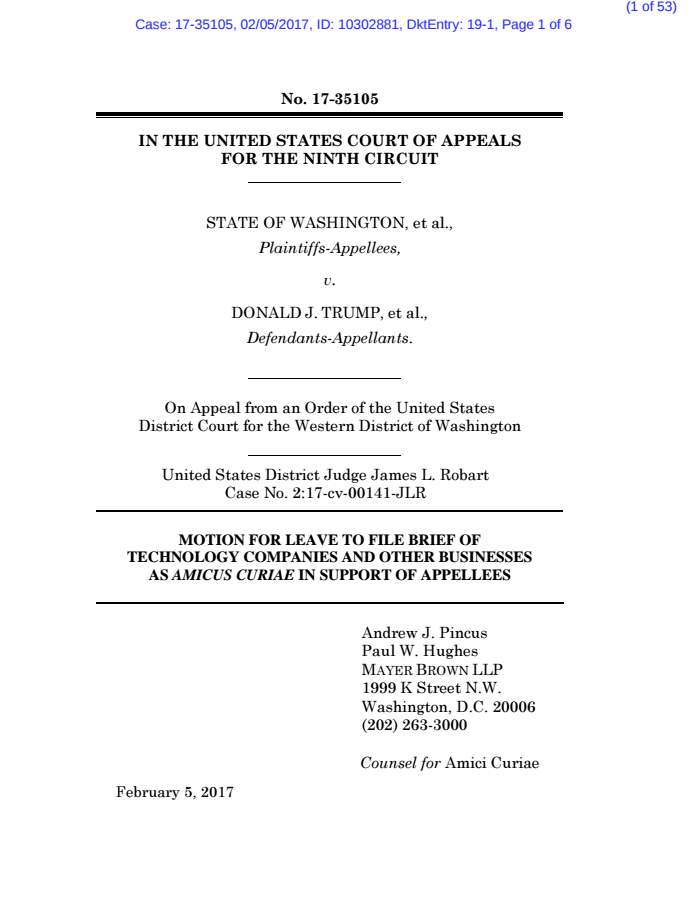The success of the North American business sector can be in-part credited to the innovations produced by North American companies. However, an important fact that can be overlooked is that a large percentage of the people responsible for these innovations are immigrants. In fact, the National Science Foundation (2014) estimates that around 49% of all U.S. postdoctoral researchers in important areas such as the STEM sector are immigrants[1]. Since immigrants represent a large portion of American scientists and engineers, big technology companies are reluctant to risk the future of their corporations in the face of President Trump’s immigration ban.
According to a recent article published by the Harvard Business Review (HBR), countless tech companies have lobbied and taken legal action against Trump’s ban, detailing the devastating effect such a law would have on their respective businesses[2]. Even though lobbying against Trump’s ban is honorable, the author of the article notes that these influential tech companies seem to only be concerned with how the limited access to immigrant talent will impact their ability to produce new technology and not with the human rights issues involved (Latonero, 2017).
- Tech companies’ amicus brief. – No. 17-35105 IN THE … (n.d.). Retrieved September 13, 2017, from pdf file
The ethical issue lies in the fact that these tech companies have made an effort to remove the ban in order to best represent their interests, yet they do so under the guise of social awareness. The brief that the 162 tech companies published, which states that the ban “hinders the ability of American companies to attract talented employees” (International Refugee Assistance Project, 2017), exhibits a lack of language regarding the non-business reasons for opposition. This indicates that they do not care about the fate of refugees. Although some companies have issued vague statements in favor of welcoming refugees, their overall response has been generally passive and performative.
Regardless of whether the result of the companies’ lobbying can ultimately help refugees, it is unacceptable to feign humanity when the only reason these companies are taking a stand is for their own benefit. Nevertheless, should the potential impact of their actions—a verified rejection of Trump’s ban—be partially credited to these technology companies if that is to happen? Does intention matter if the result is positive, regardless of unethical praxis?
Word count: 364 words
[1] Science and Engineering Indicators 2014. (n.d.). National Science Foundation. Retrieved September 12, 2017, from https://www.nsf.gov/statistics/seind14/index.cfm/chapter-5/c5s3.htm
[2] Latonero, M. (2017, May 16). Tech Companies Should Speak Up for Refugees, Not Only High-Skilled Immigrants. Retrieved September 12, 2017, from https://hbr.org/2017/05/tech-companies-should-speak-up-for-refugees-not-only-high-skilled-immigrants
[3] Drange, Matt. “Nearly 100 Tech Companies Join Forces In Court To Oppose Donald Trump’s Immigration Ban.” Forbes, Forbes Magazine, 6 Feb. 2017, www.forbes.com/sites/mattdrange/2017/02/06/nearly-100-tech-companies-join-forces-to-oppose-donald-trumps-immigration-ban/.

